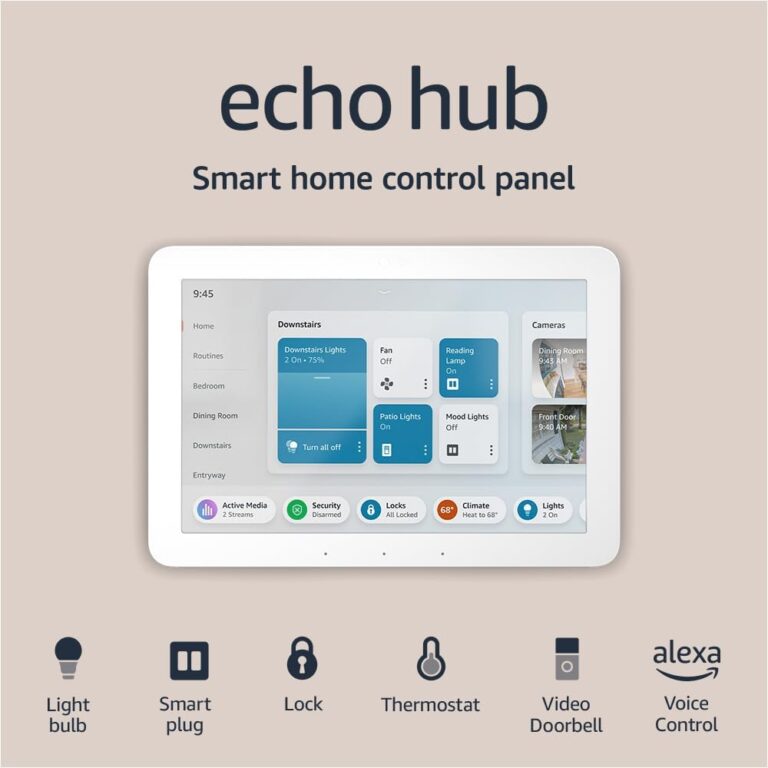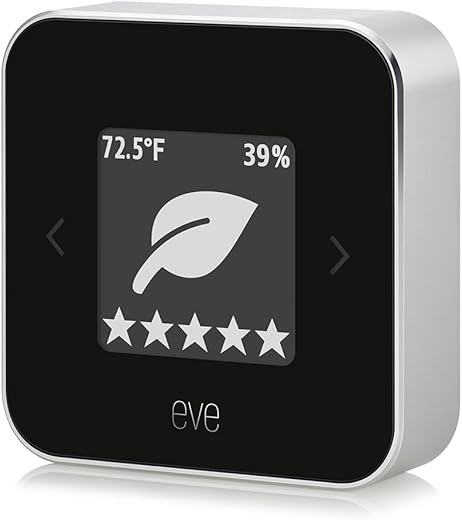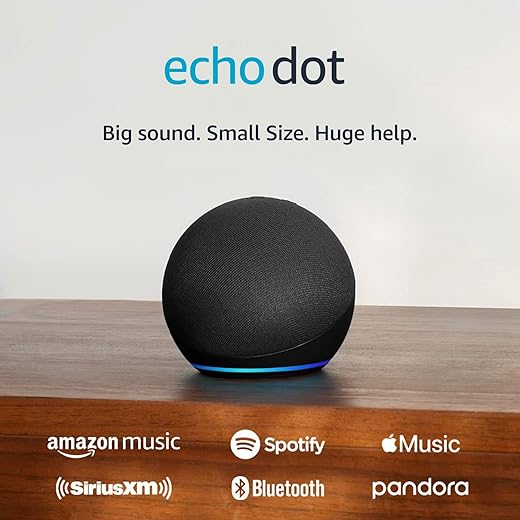Introduction to Smart Climate Control
As the world seeks to reduce energy consumption and combat climate change, smart climate control solutions are emerging as a vital part of the puzzle. These innovative systems not only enhance the comfort of our indoor environments but also play a crucial role in maximizing energy efficiency.
In this article, we will delve into the concept of intelligent climate control systems and explore their transformative potential. We will start with an overview of these advanced solutions, laying the groundwork for understanding their significance in today’s energy landscape.
Next, we will examine the numerous benefits that come with adopting smart climate control technologies, including cost savings and environmental impact. We will also identify the key technologies driving this trend, highlighting their critical roles.
However, the road to implementation is not without its challenges. We will discuss considerations that organizations must keep in mind as they adopt these systems. Finally, we will look toward the future, exploring emerging trends that promise to further revolutionize climate control technology.
Understanding Intelligent Climate Control Solutions
Smart climate control solutions represent a groundbreaking shift in how we manage indoor environments. These systems harness the power of advanced technologies, including the Internet of Things (IoT), artificial intelligence (AI), and machine learning, to create automated, adaptive climate management that enhances user comfort while optimizing energy consumption.
What Are Intelligent Climate Control Solutions?
At their core, intelligent climate control solutions refer to systems that can learn from user behaviors and preferences to adjust heating, ventilation, and air conditioning (HVAC) settings. Unlike traditional systems that operate on fixed schedules, these smart systems can analyze real-time data to provide customized climate responses. For example, a smart thermostat might lower the heating when everyone leaves the house and adjust it back to a cozy 72°F shortly before you return—maximizing comfort while minimizing energy waste.
How Do They Work?
Key to the functionality of intelligent climate control is their integration with IoT devices. Sensors placed throughout a building gather data on occupancy, temperature, humidity, and even air quality. This data is sent to a central system, where AI algorithms analyze it to make informed adjustments automatically. These systems can even utilize weather forecasts to proactively optimize indoor conditions.
Technologies Behind Smart Solutions
This combination of technologies not only increases energy efficiency but can also lead to substantial cost savings. As we explore the benefits of smart climate control systems next, it becomes clear just how transformative these innovations can be for our homes and workplaces.
Benefits of Smart Climate Control Systems
Implementing smart climate control systems offers a multitude of benefits that go beyond mere convenience. Let’s explore some of the key advantages that make these systems a worthwhile investment for both residential and commercial spaces.
Energy Savings
One of the most significant benefits of smart climate control systems is their potential for energy savings. By utilizing real-time data, these systems can optimize heating, cooling, and ventilation to ensure that energy is only used when and where it is needed. For instance, a study from the U.S. Department of Energy estimates that smart thermostats can save homeowners anywhere from 10-30% on their heating and cooling bills by learning their routines and adjusting accordingly.
Enhanced Comfort
Smart climate control systems provide a level of personalized comfort that traditional systems cannot match. With features like zoning control, users can adjust temperatures in different areas of their home or building, ensuring that every room is at the ideal temperature for its occupants. This customized environment enhances the overall satisfaction of residents and employees, fostering a more productive and enjoyable indoor experience.
Reduced Carbon Footprint
In an era where environmental responsibility is paramount, smart climate control aids in reducing one’s carbon footprint. By minimizing energy consumption, these systems contribute to lower greenhouse gas emissions. For businesses, investing in energy-efficient climate control can bolster their environmental commitments, potentially attracting eco-conscious consumers and improving brand image.
Improved Air Quality
Beyond temperature control, advanced climate systems can actively monitor and manage indoor air quality. They can adjust ventilation rates based on occupancy and indoor air pollution levels, utilizing sensors that detect particulates, humidity, and CO2 levels. This results in healthier indoor environments, which is particularly important for vulnerable populations such as children and the elderly.
As we delve deeper into the key technologies driving these innovations, we begin to see how they interconnect to create smarter, more efficient systems that reshape our approach to climate control.
Key Technologies Driving Smart Climate Control
As we advance in the realm of energy efficiency, several pivotal technologies underpin smart climate control systems. Through a combination of innovative tools and techniques, these technologies work collaboratively to create optimal environments while minimizing energy usage.
Smart Thermostats
At the forefront of smart climate control are smart thermostats, such as the Nest Learning Thermostat and Ecobee SmartThermostat. These devices learn user habits over time and can automatically adjust settings based on occupancy and time of day. By leveraging GPS data, they can even optimize temperatures when homeowners are approaching or leaving their residence, providing both comfort and energy savings.
Sensors and IoT Integration
Sensors play an integral role by gathering data on various household factors—like temperature, humidity, and occupancy levels. Smart motion sensors detect when rooms are in use and adjust climate conditions accordingly. IoT devices facilitate seamless communication between these sensors and the climate control system, enabling real-time data analysis that informs automatic adjustments.
Automation Systems
Robust automation systems enhance the effectiveness of climate control. Through platforms like Google Home or Amazon Alexa, users can command their climate systems via voice automation, setting schedules or preferences effortlessly. These systems often integrate with other smart home devices, such as smart blinds or air purifiers, creating comprehensive energy management solutions that further enhance comfort and efficiency.
Data Analytics and Machine Learning
Data analytics, powered by machine learning, empowers smart climate control systems to adapt based on environmental data and user preferences. Machine learning algorithms analyze patterns from user history and external factors—such as weather forecasts—allowing these systems to optimize energy usage dynamically. For instance, they can pre-emptively cool or heat spaces before occupants arrive, ensuring comfort while avoiding energy spikes.
Forward-Looking Technologies
As we continue to refine and implement these technologies in buildings worldwide, it’s exciting to consider how future innovations will enhance functionality even further. The next section will delve into the challenges and considerations faced when adopting smart climate control solutions, offering insights into a successful transition in this evolving landscape.
Challenges and Considerations in Implementation
While the promise of smart climate control systems is alluring, the journey to implementation can involve several challenges that businesses and homeowners must navigate. Understanding these obstacles upfront can help ensure a smoother transition to intelligent climate management.
Cost Factors
Initial Investment: Smart climate control systems often come with significant upfront costs. High-quality smart thermostats and sensors can be expensive, and retrofitting an existing HVAC system may require additional expenditure.
Long-Term Savings vs. Short-Term Costs: Although energy savings can offset the initial outlay over time, it can be challenging for buyers to recognize the long-term benefits. For instance, a smart thermostat may seem pricey initially, but users can potentially recover that cost through energy bill reductions in just a few years.
Technology Compatibility
Existing Infrastructure: Homeowners and businesses with older HVAC systems may encounter compatibility issues when integrating smart climate control solutions. Systems designed for older technologies may not easily sync with newer IoT devices.
Interoperability Concerns: With various manufacturers and platforms in the market, ensuring that devices can communicate and work together fluidly remains a challenge. Future-proofing investments by selecting compatible systems can mitigate this risk.
User Adoption
Learning Curve: Adapting to a smart climate control system may be daunting for some, especially for those less technologically inclined. Comprehensive onboarding, training, and user-friendly interfaces can help ease this transition.
Behavioral Adjustments: Users might have to shift longstanding habits—for instance, embracing automation rather than manually controlling settings. Promoting awareness of the benefits through educational resources can facilitate smoother adaptation.
In order to navigate these challenges, establishing a clear understanding of one’s needs and objectives is crucial. By addressing these considerations, users can better prepare for the rewarding advancements that smart climate control offers. Next, we will explore future trends in climate control technology, highlighting what lies ahead for this dynamic sector.
Future Trends in Climate Control Technology
The future of climate control technology promises a landscape filled with exciting advancements that will enhance efficiency and sustainability. By embracing innovation, we can expect a host of transformative trends poised to revolutionize our approach to energy management and indoor comfort.
Advancements in AI Algorithms
Artificial Intelligence (AI) is set to take center stage in future climate control systems. Advanced algorithms will learn from user behaviors and environmental patterns, creating predictive models that optimize energy usage. For instance, AI could forecast weather changes and adjust indoor conditions in anticipation—saving energy and maximizing comfort. Smart learning thermostats will evolve from simple preferences to intricate systems that integrate multifaceted data, making them adaptable to real-time conditions.
Renewable Energy Integration
As the shift towards renewables accelerates, climate control systems will increasingly link up with solar panels and wind energy sources. Future innovations will enable buildings to adjust climate conditions based on the availability of renewable energy. For example, a smart home could prioritize cooling during the day when solar generation is high, thus minimizing reliance on the grid during peak hours. This strategy not only boosts energy efficiency but also aligns with broader environmental goals.
The Role of Smart Grids
Smart grids, enhanced by IoT and big data analytics, will facilitate dynamic communication between energy suppliers and consumers. This interactivity will empower climate control systems to respond to fluctuations in energy supply and demand. Users could charge their electric vehicles or boost heating during off-peak hours when energy costs are lower, thereby optimizing both comfort and utility expenses. The integration of smart grids with intelligent climate control will pave the way for more resilient and sustainable energy management.
Conclusion Transition
As these trends unfold, the intersection of AI, renewable energy, and smart grid technology will redefine how we manage our indoor climates. Embracing these advancements will not only enrich our day-to-day experiences but also foster an environmentally responsible future in climate control. As we look ahead, it’s vital to explore how these emerging technologies can support sustainable living and energy efficiency.
Conclusion: Embracing the Future of Climate Control
As we navigate the pressing challenges of climate change, intelligent climate control solutions stand out as a crucial element in enhancing energy efficiency. By leveraging advanced technologies, these systems not only optimize energy consumption but also contribute to a more sustainable environment.
Widespread adoption of smart climate control is essential for reducing our carbon footprint and fostering a greener future. As individuals, businesses, and governments invest in these innovative solutions, we move closer to a world where energy efficiency and environmental stewardship go hand in hand. Let’s harness the power of intelligent climate control and commit to creating a more sustainable future for generations to come.



I’m loving this discussion! So much to think about with smart climate control. I’m really interested in how it could change our daily lives. Any predictions for the future?
For sure! I can see us controlling everything from our phones in the future.
Hopefully, they’ll be easier to use! I’m not a tech genius over here.
We predict that as technology advances, these systems will become even more integrated and user-friendly.
Why does everything have to be ‘smart’ now? I mean, isn’t a regular thermostat good enough? I feel like it complicates things more than necessary. What do you all think?
I see your point, but what’s life without a little tech, right? 😄
Great question, Robert! Smart systems can actually learn your preferences and adjust automatically, which can save you time and money.
I get what you mean, but it’s kind of cool to have tech that adapts to your lifestyle. It’s like living in the future! 🚀
The future of climate control looks promising! I loved the section on key technologies driving this movement. I work in tech, and I can see how AI and IoT are changing the game. Can’t wait to see where this goes!
Thanks, Tommy! Technology is evolving quickly, and it’s exciting to see these advancements in climate control.
I’m just hoping that these systems can actually last longer than the average appliance! 😂
Is anyone else excited about the potential for energy savings? I mean, if these systems really work, imagine how much we could save on bills! 💰
I’m all about saving money! If I can lower my bills and help the planet, sign me up!
Same! Plus, it’s nice to feel like you’re doing something good for the environment.
Absolutely, Chloe! Many users report significant savings after switching to smart systems.
I’m a little skeptical about all this. What are the actual challenges with implementing these systems? I feel like every article just glosses over the negatives. 🤔
Right?! It’s not like everyone has the money for a contractor every time something goes wrong.
True, but some DIY options are available if you’re tech-savvy. Just do your research!
That’s a valid concern, Lisa! The article does mention some challenges like installation issues and the need for professional help.
I love the idea of smart climate control, but I’m worried about privacy. How much data are these systems really collecting? 🤨
Privacy is definitely a concern. Most systems have security measures, but it’s always good to check the privacy policies.
Exactly! Sometimes I feel like I’m buying a spy device instead of a thermostat.
Haha, right? It’s like, thanks for keeping my house smart, but can you not watch me?”
I think it’s super interesting how climate control tech can impact energy efficiency. 🌱 Just wondering if these systems can work with older homes too? Anyone know?
Good to know! I live in an old house and would love to upgrade without tearing everything out.
Yes, some smart climate control systems can be retrofitted to older homes, but it depends on the existing infrastructure.
That’s a great point! I’ve always wanted to make my place more eco-friendly.
This seems like a great step towards a greener future, but I hope the tech doesn’t become obsolete too quickly. I’ve seen so many gadgets just disappear after a few years. 😕
Totally! It’s like a new phone every year, only we’re talking about our homes.
Yeah, I feel you. It’s always a gamble with tech these days.
That’s a valid concern, David. We recommend choosing systems from reputable brands that have a track record.
I think smart climate control is such an awesome innovation! 🌍💡 It’s about time we made our homes more energy-efficient. I just wish it wasn’t so expensive to install these systems. The article did a great job explaining the benefits, but I’m still worried about the upfront costs. Anyone else feel the same?
Totally agree with you! It’s like they want us to save the planet but at what cost? 😅
I hear you! But some companies offer financing options that can help spread out the costs.
Thanks for the feedback, Emily! It’s true that installation can be pricey, but many systems pay for themselves in energy savings over time.